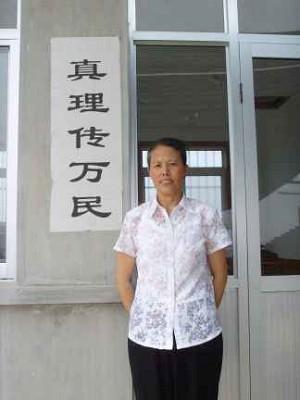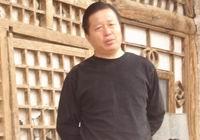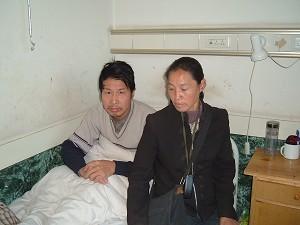The Chinese Communist regime demolished a Christian church in Xinxiang, arrested several Christian worshippers at another Xinjiang church, and seized a church in Gansu Province, prompting a 15-day sit-in protest by worshippers there.
Policemen and hired thugs demolished a house church building in the campus of “Changchun Agricultural University” in the suburb of Changchun city, Jilin province on October 26, 2006. The building served as the gathering place for Nongda house church when religious activities were held there. The place was also used as the “Morning Star Supermarket” in other times. According to the witnesses, the government sent 500 policemen and several hundred peasant workers to the site at 4 o'clock in the morning. The police entered the building, woke the people sleeping there and drove them out into the street.
The police and the thugs proceeded to totally demolish the building. Within an hour, the main part of the building as well as the furniture in it were piles of debris. Throughout the entire process, the police gave no explanation nor justification. Nongda house church, which had been in use for more than 10 years, mainly served Christians in the nearby countryside. It not only gained reputation in the surrounding areas, its influence reached as far as Heilongjiang and Inmongolia. Though being threatened, attacked, and harassed frequently, the church has always stuck by the principle of not being affiliated with government-controlled Chinese Patriotic Church, or registering with the government. Nongda worshippers held to orthodox Christian belief, and worshipped according to the uncensored Christian Bible, rather than the government’s altered version.
Also in Xingiang the local police arrested more than 10 Christians, including three Singaporeans, in Qingshui Town, Huocheng County, Yili City, on October 20, 2006. Most of the arrestees, including three Singaporeans, were released October 21, 2006.
Five of the arrested Christians are still in detention, they are: Brother Liu and brother Ouyang Liang from Uramqi, brother Li Baoming, brother Tan Defu, and brother LouYuanqi from Huocheng. All the Christians were locked in Huocheng detention centre, except brother Ouyang, who has been escorted to an unknown place. His home in Uramqi was searched by the police. According to the eyewitnesses, the event was triggered by a local Christian family’s invitation to their fellow believers for the blessing ceremony of their newly rebuilt house. While the Christians were singing hymns at the beginning of the ceremony, the police besieged the house and took them to the local police station for interrogation.
On October 16, 2006 300 Christians from a Three-Self Patriotic Movement (TSPM) church in Qinzhou district, Tianshui city, Gansu province sat silently at the site of their original church property protesting the local government who is currently occupying it. They are requesting the return of this property to the church. Despite pressure from the local government the demonstration has lasted for 15 days. In 1966, during the Cultural Revolution, all the priests and pastors were expelled from the church premises. The church property of 650 square meters was given, free of charge, to two nation-owned factories. After the Cultural Revolution, the church repeatedly requested the government return the property. In 1984, the government unilaterally decided to remunerate the church 50,000 RMB for the property it had occupied, without any real estate evaluation.
Due to the huge gap between the actual value of the church property, worth several million RMB, and the 50,000 RMB the government offered, the church refused to accept the decision, and continually appealed to higher-level government offices and to the People’s Council. But the government officials refuse to reconsider. Recently the local government sold the property to a developer for 17 million RMB. The Christians decided they could not keep silent any longer and started a sit-down demonstration on the original church property. The government declared that the implementation of the religious policy only means to redress the case politically rather than settle the account financially, thus supporting the 50,000 RMB as remuneration. The government also threatened to stop paying the Christians’ pensions, and even resorted to violence. Yet the Christians answered by praying and singing hymns. The Christians believe that the government’s decision contravenes the central government’s stipulation of returning the occupied property of the religious organization to its owner. They insist that the local government return the church property to the church according to the stipulation of central government provisos. This situation is still developing.


